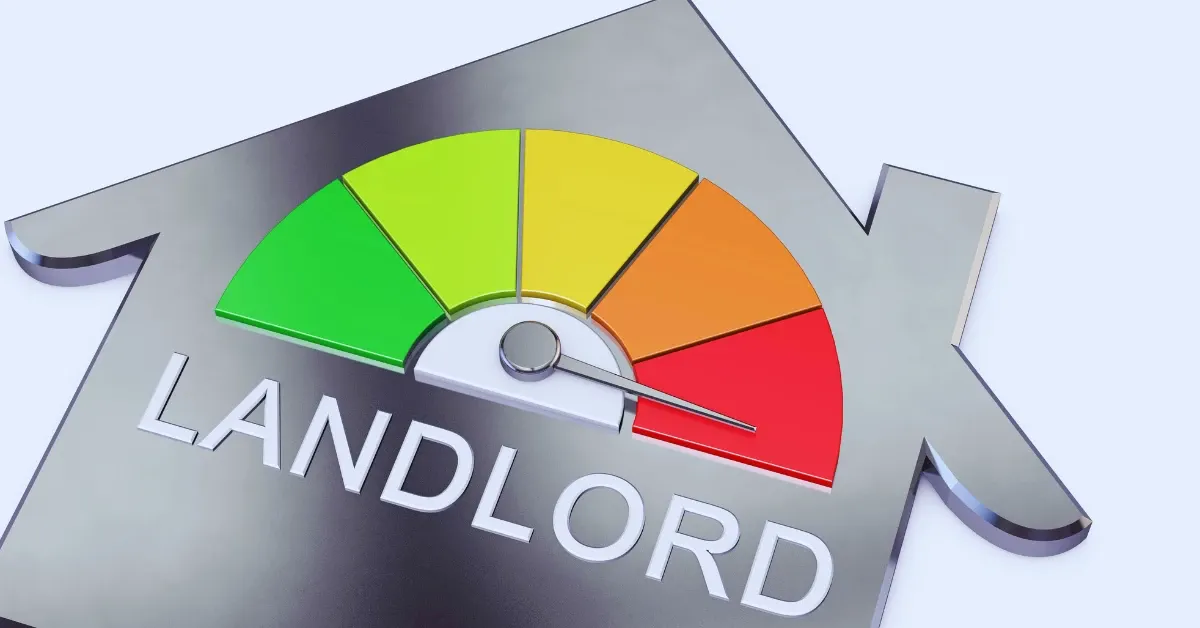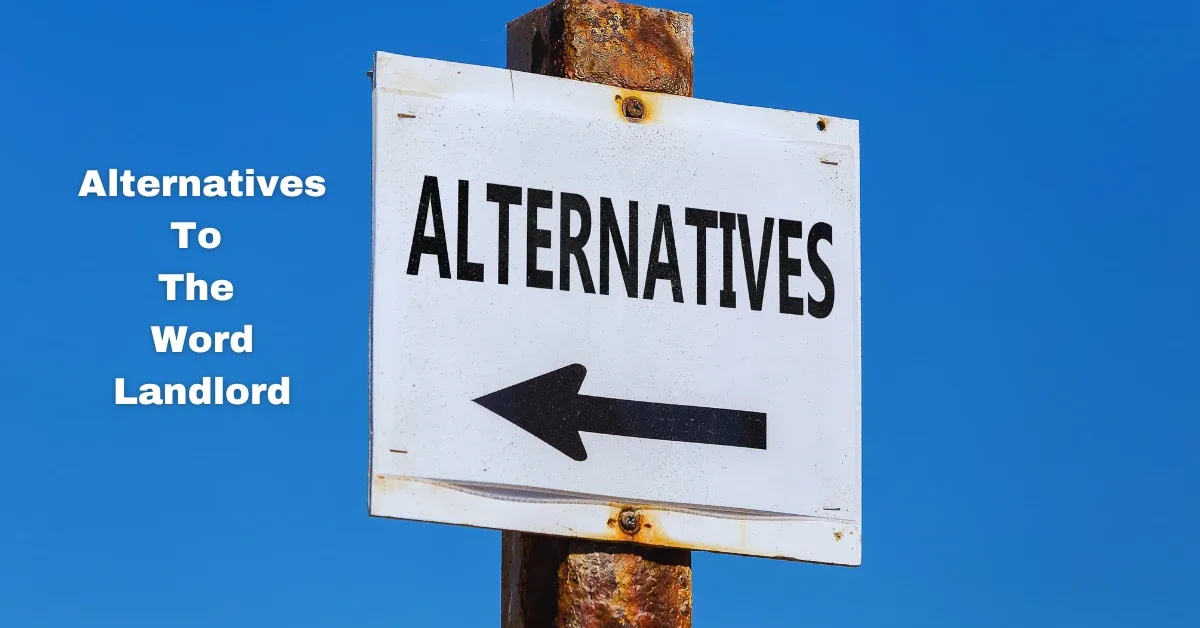Where Does the Word Landlord Come from? Rental Awareness
The word “landlord” comes from the old English word “landhlāford,” which means “one who holds the land.” This term is used to refer to the person who owns and rents out a piece of property, typically a house or apartment, to tenants.
In medieval Europe, landlords were often nobles or wealthy landowners who controlled large estates.
Today, the role of the landlord is still an important one, as many people choose to rent rather than own their own property.
However, the relationship between landlords and tenants has evolved over time, and there are now many regulations in place to protect both parties and ensure fair treatment.

The Origin And Evolution Of Landlords

Meaning Of Landlord
The word landlord is a compound noun made up of two old English words, ‘land’ and ‘hlāford’, which ultimately means ‘master of the land’.
There can be several interpretations of the term landlord, but in general, it refers to a person who owns the property and rents it out to others.
Historical Context Of Landlords
The evolution of the idea of a landlord can be traced back to feudal Europe, where a king would grant land to a noble person, who in turn would lease it out to peasants for a profit.
The concept gradually spread to other parts of the world, including the united states.
First Usage Of The Word Landlord
The first usage of the word landlord was recorded in England in the early 15th century, referring to a person who leased out property to tenants.
Over time, the meaning of the term expanded to include owners of rented property and became more commonly used in the 18th century.
Roles And Responsibilities Of Landlords
Apart from providing a place to live, landlords also have other duties towards their tenants.
These can include maintaining the property, arranging repairs, ensuring the safety of the tenants, collecting rent, and handling tenancy agreements.
Types Of Landlords
There are several types of landlords, each with their own unique characteristics. Some of the most common types include:
- Private landlords: These are individuals who own rental properties and rent them out to tenants.
- Corporate landlords: Large companies that own or manage several properties leased to tenants.
- Government landlords: Public sector organizations, such as housing associations, who provide public housing.
- Absentee landlords: Landlords who own a property and lease it out to tenants but don’t live on the premises.
- Resident landlords: These landlords live in the property they rent out, and typically share common spaces like the kitchen or living room with their tenants.
Modern Challenges For Landlords
Landlords face various challenges in the modern world that can make it difficult to manage their properties effectively. Some of these include:
- Legal regulations: Landlords must adhere to various legal regulations that dictate how they can manage their properties.
- Property maintenance: Landlords are responsible for maintaining their properties and addressing maintenance requests made by tenants.
- Tenant screening: Finding reliable tenants who will pay rent on time and look after the property is a challenge for many landlords.
- Rent collection: Collecting rent can be challenging, especially during difficult economic times.
- Evictions: Landlords may need to evict tenants who fail to pay rent or violate their tenancy agreement, which can be a costly and time-consuming process.
The term landlord has evolved over time and has become an essential part of the modern world’s housing needs.
With the role comes significant responsibilities, challenges, and rewards for landlords who wish to provide quality housing to tenants in need.
Alternatives To The Word Landlord
When we think of the term landlord, we often have a mixed reaction.

While some view it as a necessary role in the property rental business, others see them as cold, greedy individuals who care only about profits.
Interestingly, the word landlord has a fascinating history that can be traced back to medieval times.
But did you know that other cultures have different words to describe this profession?
Let’s take a look at some of the alternatives to the word landlord and explore their linguistic and cultural significance.
Synonyms Of Landlord
- Proprietor: A more formal term for a landlord, often used in legal documents.
- Lessor: Refers to a person who leases or rents out property to others.
- Owner: Refers to the individual who has legal rights to a property, including the right to lease it to tenants.
Other Names Used For Landlords Across The World
- Rashi: In Hindi-Urdu, this means a person who collects the rent.
- Fangdong: In Mandarin Chinese, this refers to a property owner who rents out housing units.
- Vermieter: In German, this means the person who rents out their properties and collects the rent.
- Kasbiy: In Arabic, this means one who gains a livelihood by renting out property.
The diverse range of terms used to describe a landlord across the world highlights the differences in culture, language, and social norms.
However, regardless of the language used, the essential role that they play in providing housing to others remains the same.
Importance Of Language In Defining Roles Of Landlords
Language plays a crucial role in defining and shaping the public’s perception of a profession.
The use of the term landlord, rather than the alternatives mentioned above, can elicit negative connotations.
Using more neutral terms such as owner, proprietor, or lessor can provide a different perspective.
It is crucial to consider the impact of language in creating a negative image of the role and the people who inhabit it.
The term landlord has a rich history that dates back to medieval times. However, other cultures have various words to represent the same idea.
Language plays a critical role in shaping public perception of a profession, and it is essential to use neutral, inclusive language to represent landlords accurately.
Frequently Asked Questions On Where Does The Word Landlord Come From
What Does The Word ‘Landlord’ Mean?
A landlord refers to a person who owns and rents out property to tenants.
Where Did The Term ‘Landlord’ Come From?
The term ‘landlord’ originated in medieval England, where landowners rented out their property.
How Has The Definition Of ‘Landlord’ Changed Over Time?
The definition of landlord has evolved over time to refer to those who rent out any type of property, not only land.
What Are The Responsibilities Of A Landlord?
A landlord is responsible for maintaining the property, ensuring it is safe and habitable, and collecting rent from tenants.
Conclusion
Delving into the etymology of ‘landlord’, you’ve journeyed through time from Old English ‘landlord’ to today’s leasing mogul.
Understanding its roots deepens your appreciation for the language and historical evolution, making you more than just a word user – you’re a word connoisseur.